Your child’s first steps into learning should be met with open arms and warm smiles in a space brimming with possibilities. Look for a school where your child’s curiosity isn’t just welcomed, but celebrated. Let’s talk about The Alice Smith School in Kuala Lumpur — a place where learning feels more like an adventure than a chore. It’s not just any school — it’s Malaysia’s oldest not-for-profit international school, and it’s built around a straightforward idea: curiosity is the key to learning.
Nurturing curiosity and wonder in young minds
Curiosity at the heart of learning
At Alice Smith, children aren’t sitting quietly, waiting for answers. Instead, they’re encouraged to ask questions, wonder out loud, and dive into hands-on activities. Imagine a classroom where a vintage typewriter suddenly appears — no explanation given. What happens next? The children become detectives, guessing and figuring out what it could be. That’s the kind of spark that makes for high levels of engagement.
Lynn White, the Vice Principal and Head of Early Years, shares the story about the typewriter that was left in a classroom with no explanation. The children guessed it might be an old computer, and through their exploration, they learned so much more. They made connections and shared their theories, demonstrating the power of inquiry-based learning. This approach allows children to freely exercise their curiosity, fostering a deeper understanding of concepts rather than just acquiring knowledge. “It’s about sparking wonder, not the delivery of facts,” she says.
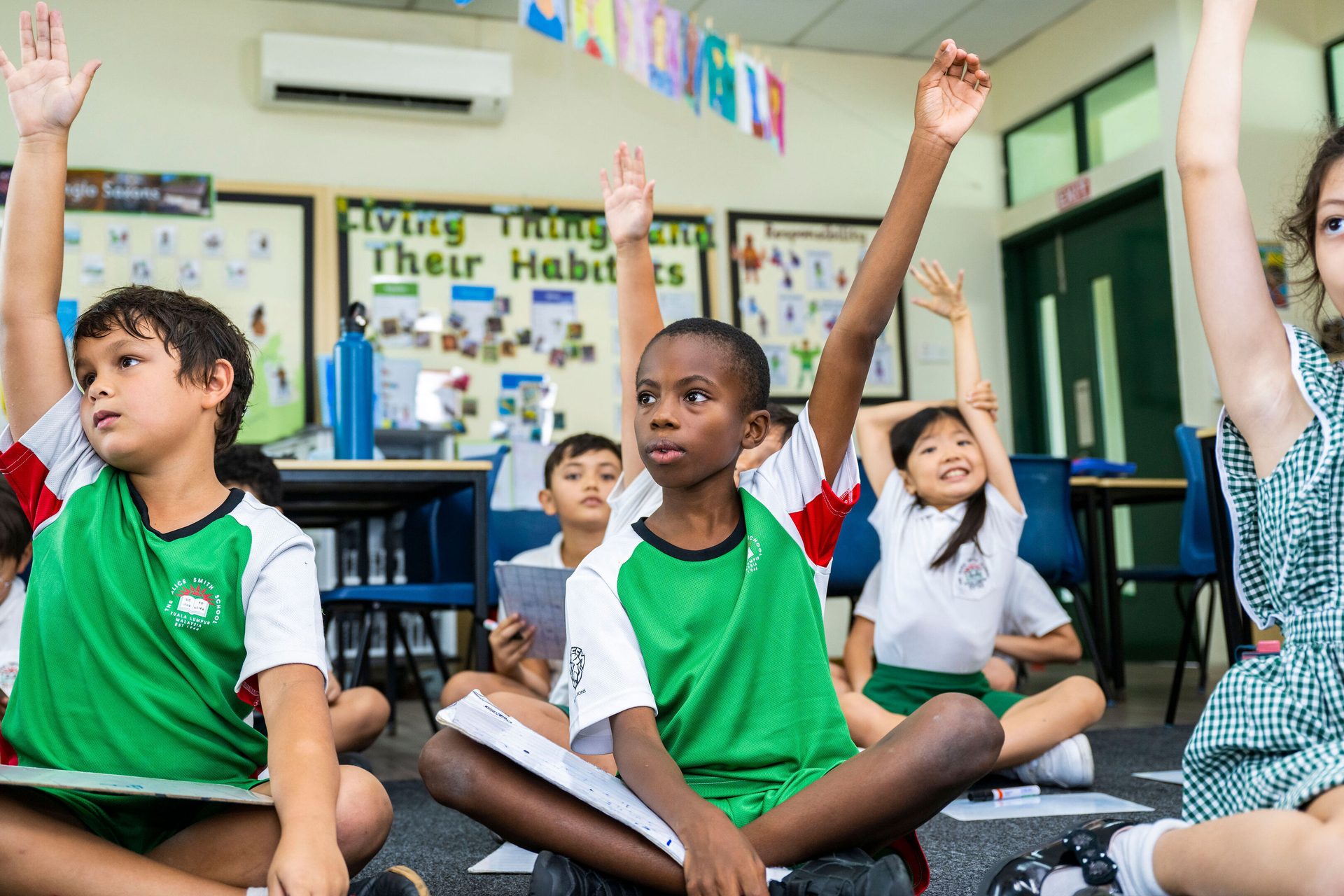
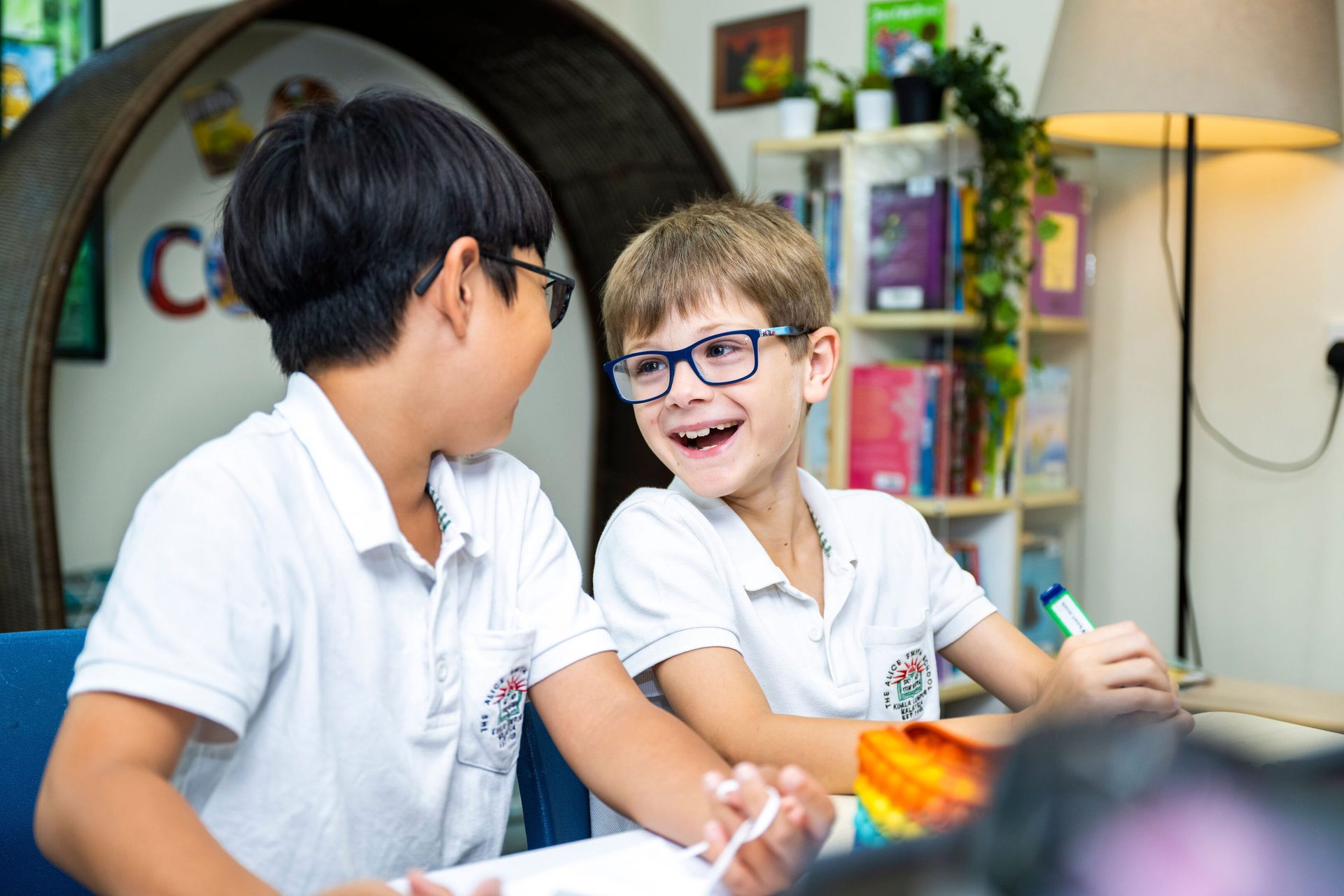
Learning through play and wonder
Alice Smith recognises that play is the way young children learn best. Imagine your child discovering shapes and mathematics by playing with a football or a cereal box or figuring out how a vintage typewriter works just by exploring it. The school's Primary Campus, with its natural environment and green spaces, seamlessly integrates indoor and outdoor learning experiences. Students explore concepts through tangible experiences, such as using a football or cereal box to understand 2D and 3D shapes. This hands-on approach keeps learning engaging and encourages children to view everyday objects through a mathematical lens.

By prioritising prevention, encouraging open communication, and offering targeted support, the IFS Counselling Centre plays a vital role in ensuring the well-being of all students - ultimately empowering them to reach their full potential.
Lynn puts it beautifully: “Children are natural thinkers. They’re full of questions and theories. Our job is not to give them all the answers but to help them find their own.” Instead of telling students what to think, teachers at Alice Smith ask open-ended questions that stimulate their thinking. Lynn says, “We want children to have voice, choice, and ownership of their learning — that’s what makes it meaningful.”
"What are you wondering?" replaces the old "What do you know?" guard. This subtle linguistic shift makes a profound difference. It encourages children to think openly and creatively without fearing right or wrong answers.
“We’re creating a culture of curiosity by asking children to think big,” shares Lynn. “They're thinking critically, they're thinking creatively, and they're having those big ideas and theories. It’s less about giving them the answers they’re looking for and more about helping them find the answers themselves.”
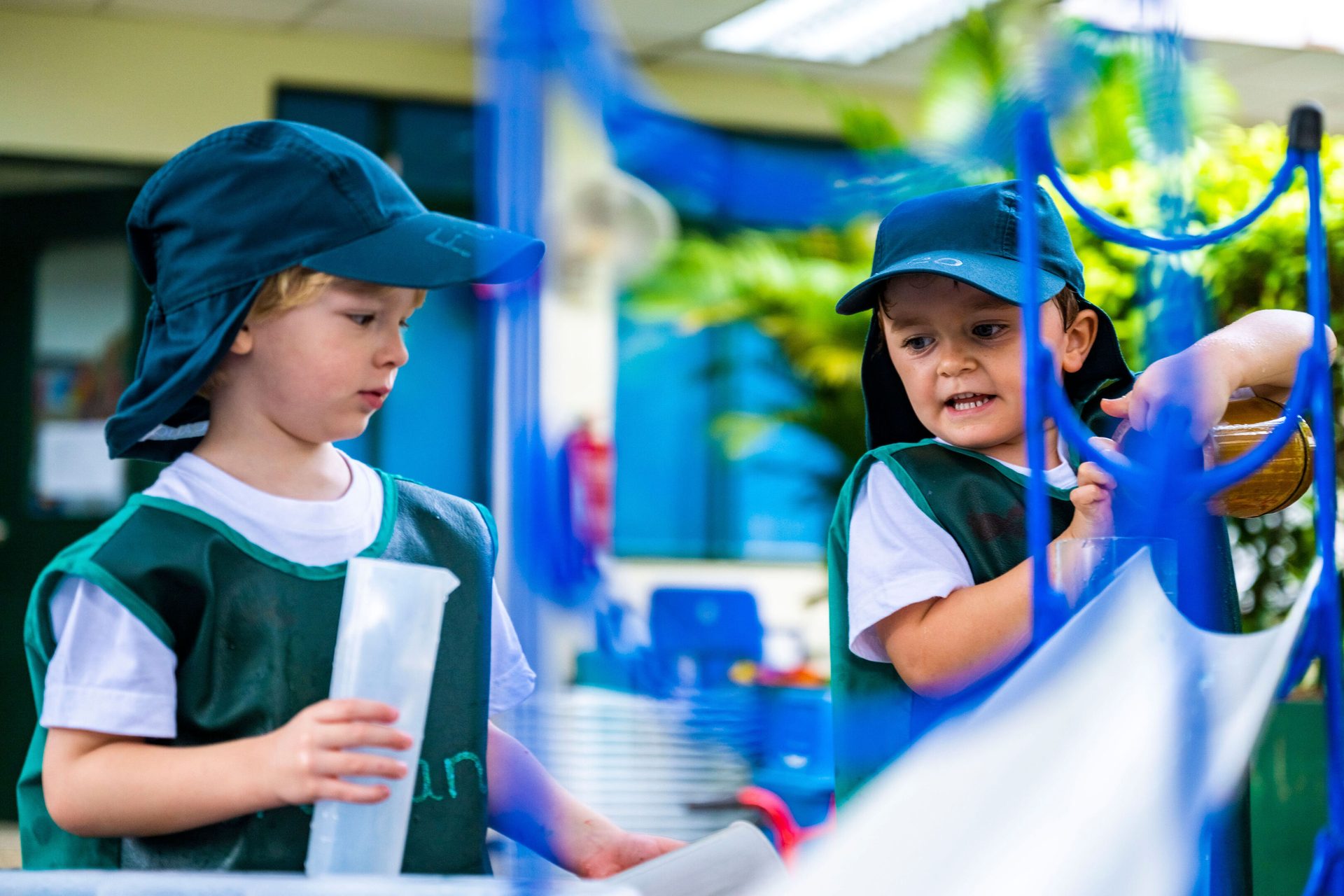
Teachers who guide, not lecture
The teachers here don’t stand at the front and lecture. Instead, they facilitate learning, supporting children in thinking for themselves. Lynn explains, “As early years professionals, you have to know exactly when it is a great time for you to come and engage in play, and when you just stand back and let the children explore. We use displays and questions to provoke thinking. It’s about encouraging independence from the start.” This way, children build confidence and learn how to learn — skills that will serve them for life.
Alice Smith educators believe that children are naturally curious thinkers, full of questions and theories. Instead of providing answers, teachers guide students to find their own solutions, using open-ended questions and thought-provoking displays to spark critical thinking. This approach allows students to develop independence and engage with the world around them from a young age.
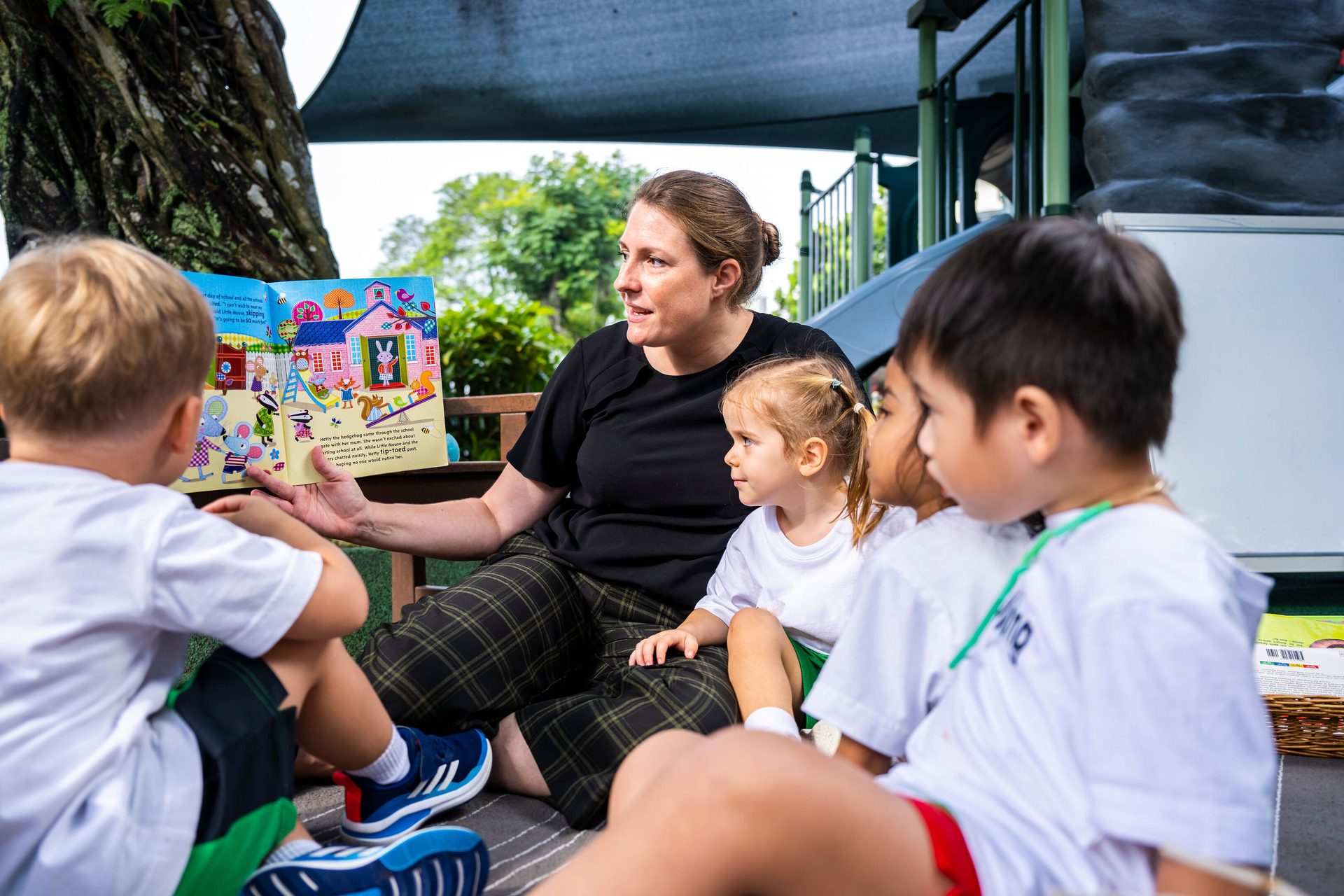
"We must be really careful that we don’t take the curiosity away from them, and we do that the minute we stop following their lead and answer all of their questions for them. So, it’s about how do I help you find the answer to your question or how can I help you solve that problem?" says Lynn. Lynn explains that sometimes that doesn’t even have to be posed as a question; the presence of the adult is enough for children to access teachers as a resource, as an essential part of their learning journey.
“It’s about tapping into the children’s curiosity,” says Lynn, who has been an international educator for about 25 years, and the school’s child-centred education perfectly reflects her own philosophy.
Balancing technology and real interaction
While technology is part of the modern world, Alice Smith is careful about how it’s used, especially with younger students. Lynn points out, “In the Early Years, social and emotional development through face-to-face interaction is our priority.” Technology is one tool, amongst many others. The focus remains on social and emotional development through direct interactions, but technology is integrated thoughtfully to enhance learning experiences. The introduction of a Head of Education Technology and Digital Wellbeing role at the school next year will further enhance this balanced approach, ensuring that digital tools support, rather than replace, real-world learning.

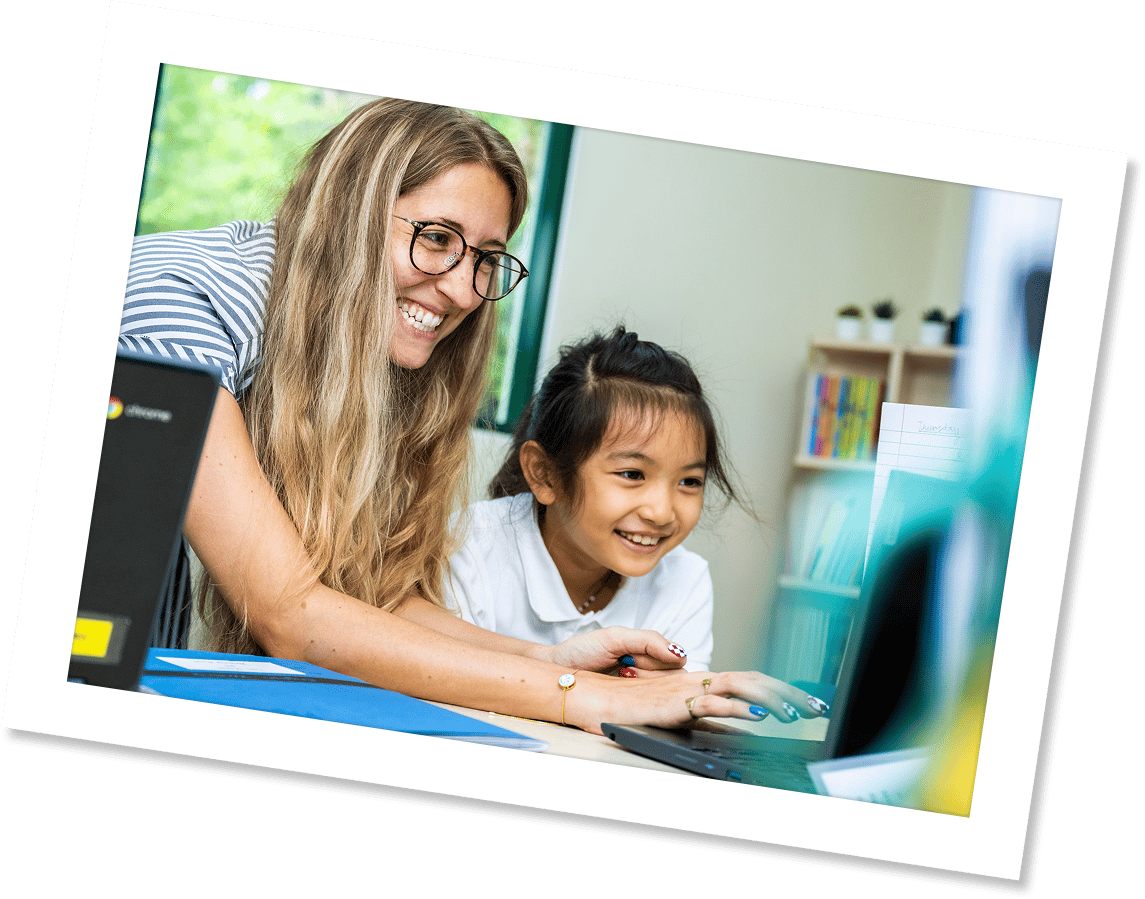

Always growing, always learning
Because it’s a not-for-profit school, Alice Smith reinvests in its teachers and their development, including workshops, conferences, and collaborations with early years specialists. The Alice Smith School continually evolves its teaching methods to stay at the forefront of pedagogical development, ensuring that educators are equipped to provide the best possible learning environment for students. Lynn emphasises the importance of ongoing learning for educators: “We send our staff to workshops and conferences so they can bring fresh ideas back to the classroom.”
This commitment keeps the school vibrant and responsive to new educational research.


A community that cares
Parents can feel confident leaving their children here because the school is more than just a place to learn — it’s a community. Lynn says, “Every moment, whether it’s storytelling, gym time, or outdoor play, is driven by creativity and care.” The school’s culture encourages children not just to learn, but to love learning together.
In Lynn’s words: “We want children to be independent thinkers who are excited to explore the world around them. When learning is joyful and inquiry-led, it sticks with them for life.”
If you want your child’s education to start with wonder, creativity, and confidence, The Alice Smith School offers just that — a place where curiosity truly comes to life.


Balancing technology and real interaction
While technology is part of the modern world, Alice Smith is careful about how it’s used, especially with younger students. Lynn points out, “In the Early Years, social and emotional development through face-to-face interaction is our priority.” Technology is one tool, amongst many others. The focus remains on social and emotional development through direct interactions, but technology is integrated thoughtfully to enhance learning experiences. The introduction of a Head of Education Technology and Digital Wellbeing role at the school next year will further enhance this balanced approach, ensuring that digital tools support, rather than replace, real-world learning.



Always growing, always learning
Because it’s a not-for-profit school, Alice Smith reinvests in its teachers and their development, including workshops, conferences, and collaborations with early years specialists. The Alice Smith School continually evolves its teaching methods to stay at the forefront of pedagogical development, ensuring that educators are equipped to provide the best possible learning environment for students. Lynn emphasises the importance of ongoing learning for educators: “We send our staff to workshops and conferences so they can bring fresh ideas back to the classroom.”
This commitment keeps the school vibrant and responsive to new educational research.


A community that cares
Parents can feel confident leaving their children here because the school is more than just a place to learn — it’s a community. Lynn says, “Every moment, whether it’s storytelling, gym time, or outdoor play, is driven by creativity and care.” The school’s culture encourages children not just to learn, but to love learning together.
In Lynn’s words: “We want children to be independent thinkers who are excited to explore the world around them. When learning is joyful and inquiry-led, it sticks with them for life.”
If you want your child’s education to start with wonder, creativity, and confidence, The Alice Smith School offers just that — a place where curiosity truly comes to life.









